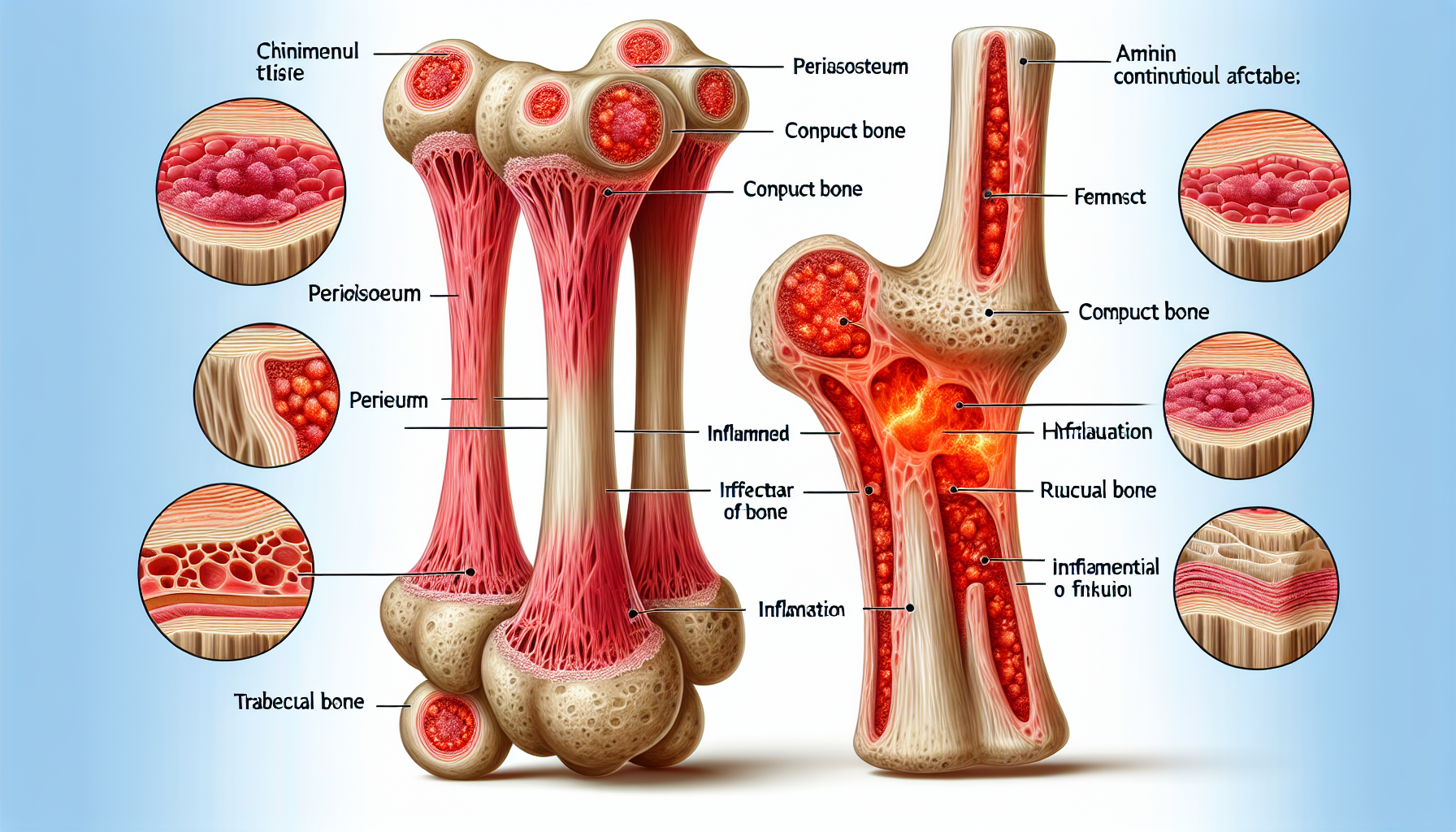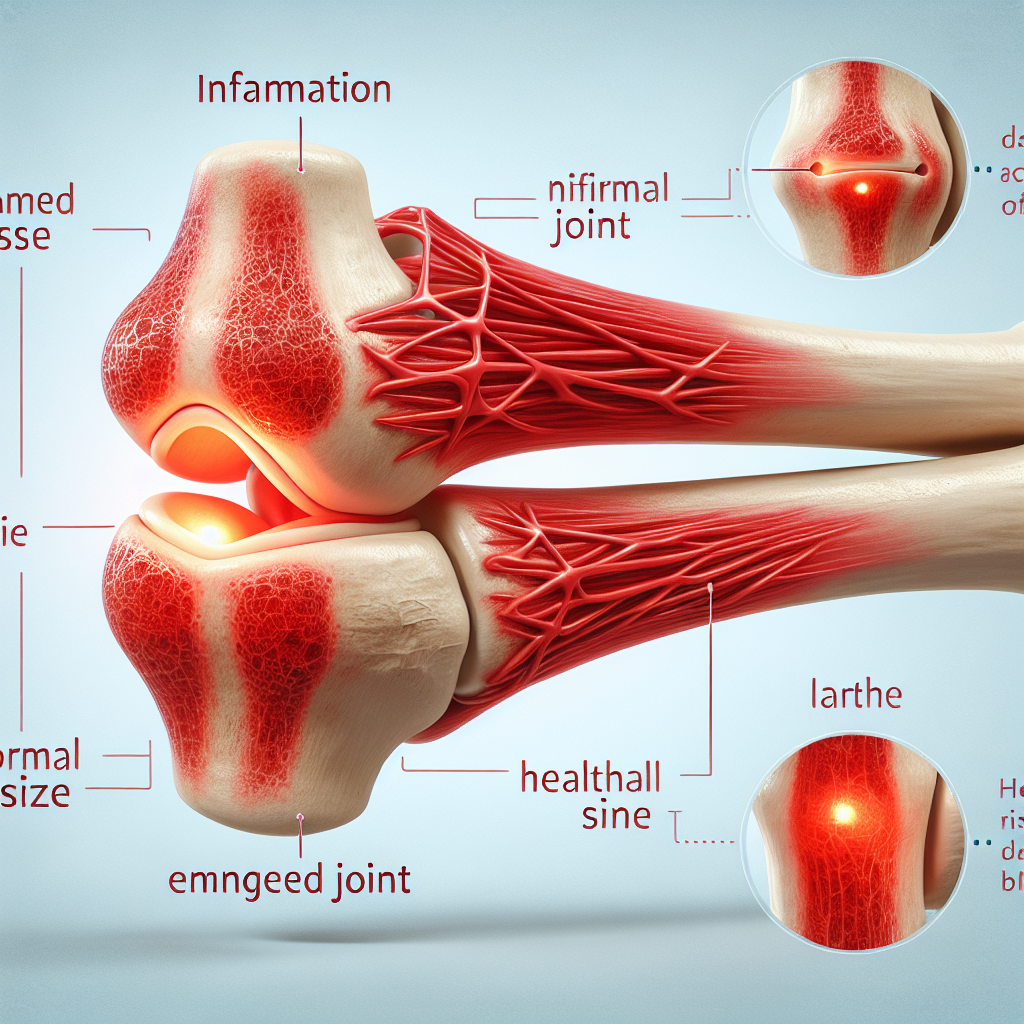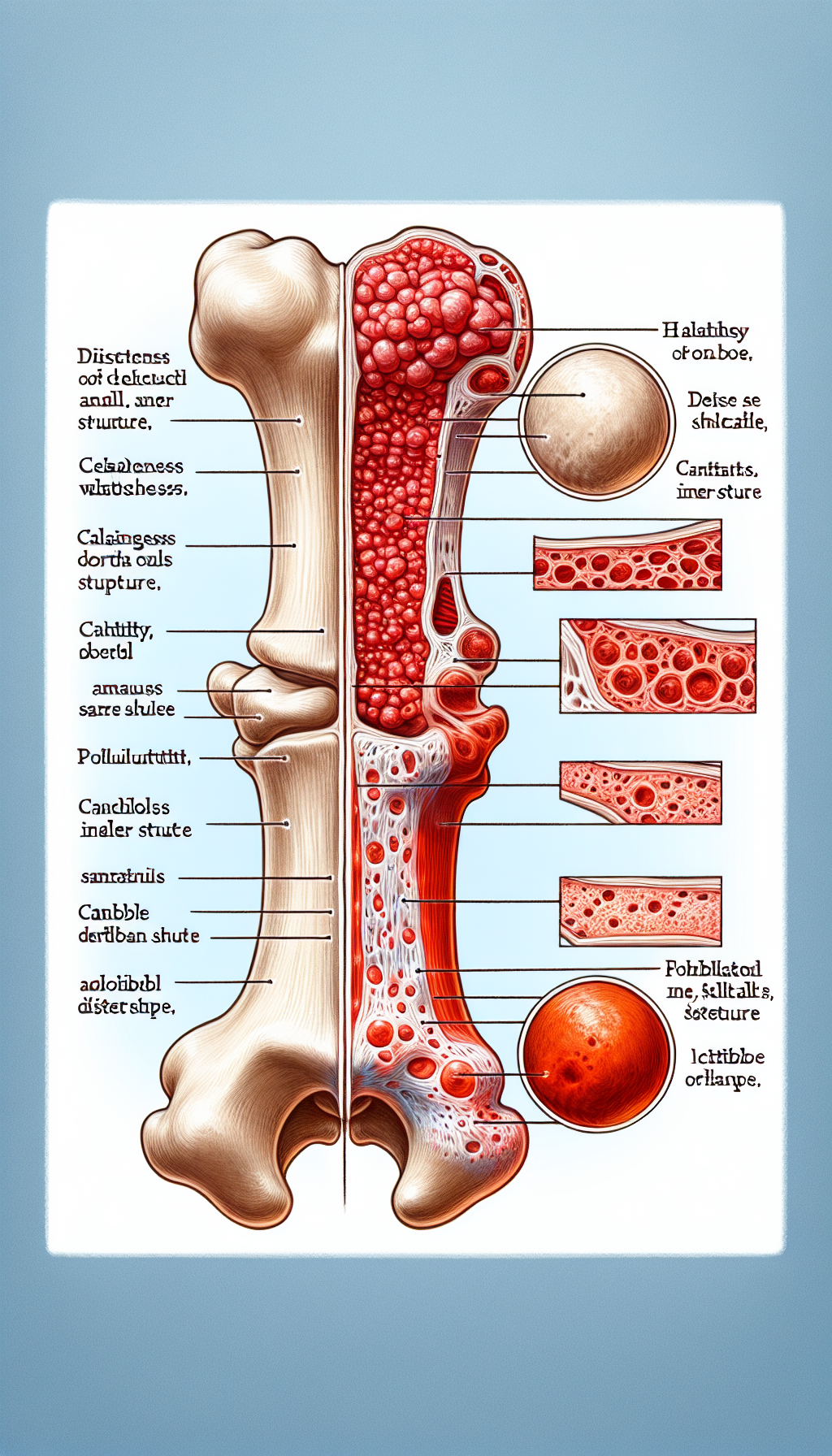Chronic inflammation is a pervasive condition that can have far-reaching effects on the body, with bone health being one of the most significantly impacted areas. Inflammation is a natural response of the immune system to injury and infection, a defense mechanism that brings necessary cells and substances to the site of an issue to promote healing. However, when inflammation becomes chronic, this once beneficial process can lead to the deterioration of bone tissue and compromise overall bone health.
Understanding the Link Between Chronic Inflammation and Bone Health
Bones are living tissues that constantly break down and rebuild. This process is crucial for maintaining bone strength and density. Chronic inflammation disrupts this balance, leading to increased bone resorption—where the body breaks down bone tissue faster than it can rebuild. This imbalance can result in a decrease in bone density, making bones more fragile and susceptible to fractures.
The relationship between chronic inflammation and bone health is complex, involving various cells, signaling molecules, and pathways. Inflammatory cytokines, such as tumor necrosis factor (TNF) and interleukins, can stimulate osteoclasts—the cells responsible for bone resorption. This can lead to conditions like osteoporosis, where bones become porous and weak.
For those seeking to understand this relationship further, the article on Bone Health provides an excellent foundation for grasping the basics of bone structure and its maintenance.
The Role of Diet and Lifestyle in Managing Chronic Inflammation
Diet and lifestyle play an important role in managing chronic inflammation. Anti-inflammatory diets, rich in omega-3 fatty acids, antioxidants, and phytochemicals, can help reduce the levels of inflammation in the body. Foods such as fatty fish, leafy greens, nuts, and seeds are beneficial for both inflammation and bone health. Regular physical activity is also crucial as it can help to strengthen bones and reduce inflammatory markers.
For a deeper dive into how dietary choices affect bone health, consider reading about Nutritional Deficiencies and Their Effects on Bone Health.
Chronic Inflammation’s Role in Autoimmune Disorders and Bone Health
Autoimmune disorders are a significant contributor to chronic inflammation. Conditions such as rheumatoid arthritis and lupus directly impact bone health through persistent inflammation and autoantibodies that target bone tissues. The link between autoimmune disorders and bone health is explored in more detail in the article The Impact of Autoimmune Disorders on Bone Health.
Innovative Treatments and Strategies to Mitigate Inflammation’s Impact
Scientists and healthcare providers are continually developing new treatments and strategies to combat the effects of chronic inflammation on bone health. Bisphosphonates, a class of drugs commonly used to treat osteoporosis, work by inhibiting osteoclasts, thereby reducing bone resorption. Newer medications target specific inflammatory pathways to decrease the activity of osteoclasts without suppressing the immune system entirely.
One emerging area of research is the role of the gut microbiome in inflammation and bone health. Studies have suggested that a healthy microbiome can modulate the immune response and potentially reduce inflammation. Probiotics and prebiotics are being investigated for their potential to improve bone density by altering the gut environment.
For an intriguing exploration of how different factors influence bone health, including the role of the microbiome, the article Understanding Bone Marrow and Its Function in Bone Health is a must-read.
The Importance of Early Detection and Regular Monitoring
Early detection of bone density loss is crucial for preventing the severe consequences of chronic inflammation on bone health. Bone density scans, such as dual-energy x-ray absorptiometry (DXA), are valuable tools in diagnosing osteopenia and osteoporosis before fractures occur. Regular monitoring allows for timely intervention and can significantly improve outcomes.
Among the variety of diagnostic tools available, some are discussed in Evaluating the Effectiveness of Different Bone Density Scans, which provides insights into the most advanced techniques used in bone health assessment.
External Resources for Further Reading
To enhance your understanding of chronic inflammation and bone health, several high-quality niche resources are available:
- The Arthritis Foundation offers specific insights into how inflammation affects the bones, particularly in the context of arthritis.
- The International Osteoporosis Foundation provides a wealth of statistics and facts about osteoporosis and bone health, highlighting the global impact of these conditions.
- The National Institute of Arthritis and Musculoskeletal and Skin Diseases presents comprehensive information on osteoporosis, including prevention and management strategies.
Conclusion
Chronic inflammation has a profound impact on bone health, potentially leading to debilitating conditions like osteoporosis. Through a combination of diet, lifestyle modifications, and medical interventions, it is possible to manage inflammation and protect bone health. Regular monitoring and early detection of bone density changes are key in preventing and treating the consequences of chronic inflammation. By staying informed and proactive, individuals can maintain stronger bones and a healthier life.



